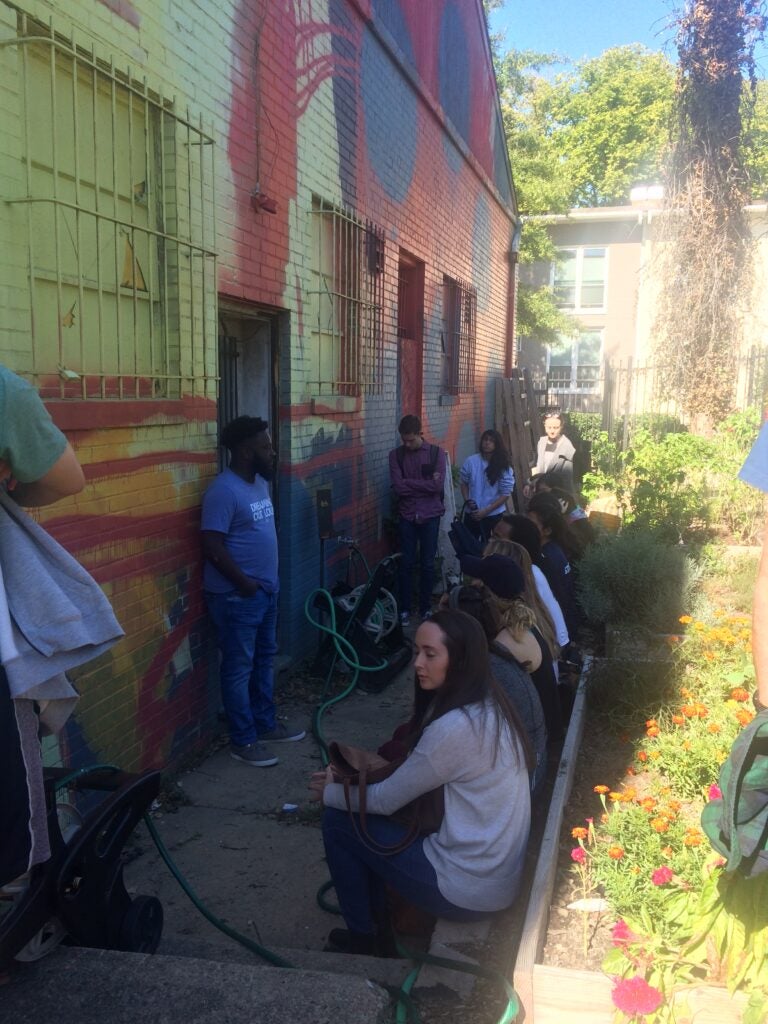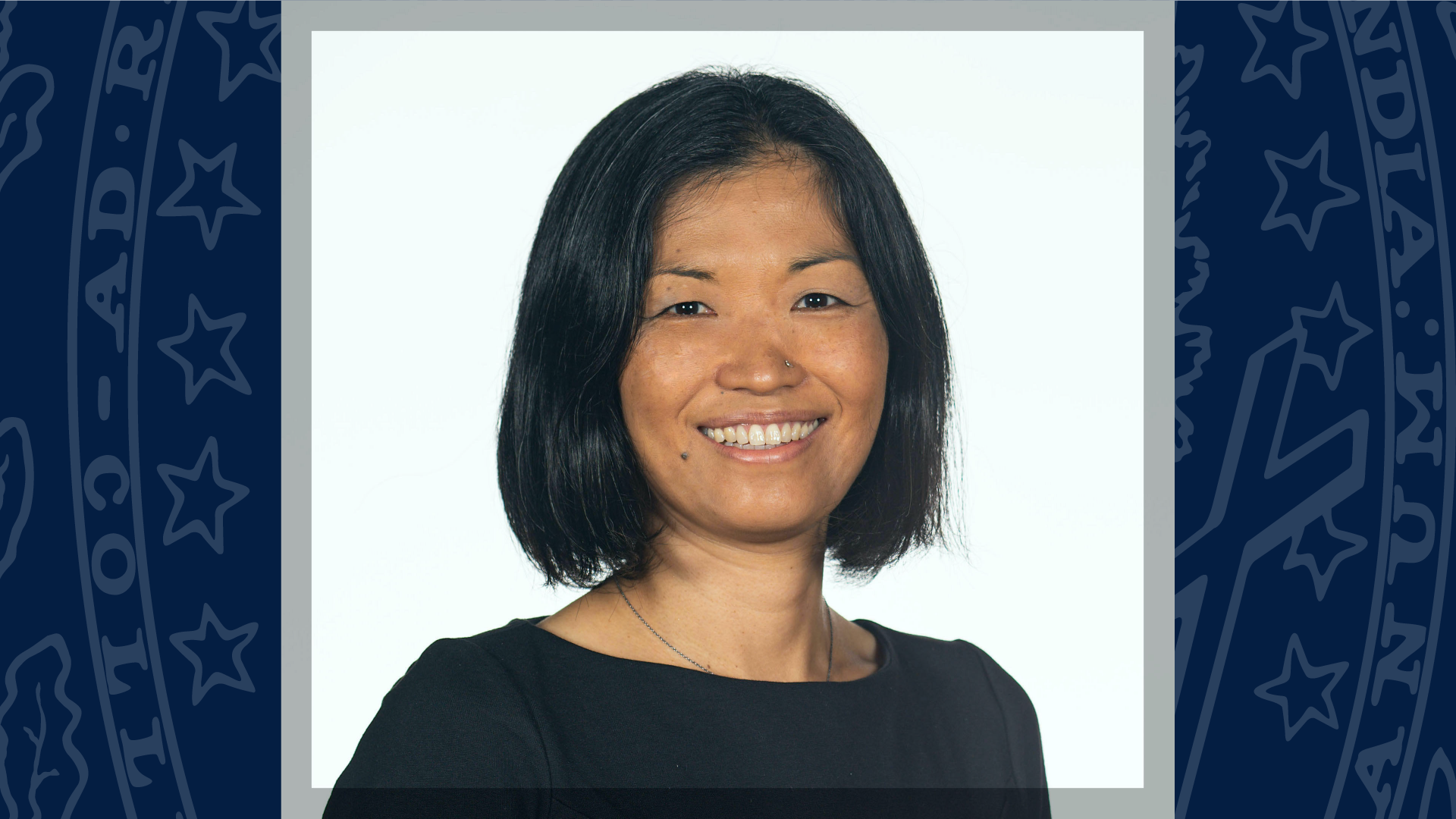Fighting for Food Justice: Sociology Professor Yuki Kato Researches Intersectional Effects of Gentrification in DC
Urban sociologist and assistant professor Yuki Kato, Ph.D., is working to bring awareness to issues related to urban agriculture in Washington, DC. An advocate for environmental justice, Kato is leading cutting-edge research through collaborative projects on Georgetown’s campus and beyond.
“I work on issues related to how people connect to the places and spaces they occupy and how they build relationships between themselves, their community and the physical space that is their city,” Kato says.
Urban Agriculture and Undergraduates
Kato started her research in urban cultivation in 2008 while working at Tulane. During New Orleans’ recovery process from the devastation caused by Hurricane Katrina, Kato noticed that people had begun gardening and farming across the city. She delved more deeply into the intersectional issues of environmental and food justice as a framework to understand urban farming and gardening.
These interests continued when Kato started her teaching position at Georgetown, and she began examining the dynamics of land access and land tenure in the city.
“I am particularly interested in urban farming and whether people can get access to spaces to do it,” Kato says. “In a city like Washington, DC that is undergoing very rapid gentrification, open space for farming becomes very difficult to find and then also acquire, but it’s not equally difficult for everyone, and I would like to change that.”

GU’s MLK Legacy of the Dream Award recipient Chris Bradshaw of Dreaming Out Loud gives Kato’s Environmental Food Justice Movements class a tour of their SW garden in 2017.
Almost immediately after moving to the district, Kato began working with the DC Food Policy Councils’ Urban Agriculture Working Group. Most recently, she received funding from the Jesse Ball DuPont Foundation to perform an assessment of whether or not the current policy regarding urban agriculture in the district is working, where it’s failing and who benefits from the policies that are otherwise touted as a sign of a green, ecological city.
During the pandemic, the professor also conducted research on the impact of COVID-19 on urban agriculture with the help of undergraduate students in her Environmental and Food Justice Movements course.
Alongside her collaborator Caroline Boules of the University of Maryland, Kato worked with nine undergraduate students to interview urban gardeners and farmers as well as managers of urban farms and gardens in Arlington County, VA; Washington, DC and Prince George County, MD to see how they adapted to changes caused by the pandemic. The team was able to interview nearly 80 people from three regions across two semesters.
“It really was an impressive feat and I could not have done it without the help of my students,” says Kato. “Being able to work with those undergraduates is definitely the key to all of the projects that I have started since I have been at Georgetown.”
Brianna Rodgers (C’22) is a sociology major who first began working with Kato during the fall 2020 semester. The senior was given the opportunity through her collaboration with Kato to become familiar with each step of the research process, from submitting a proposal for Institutional Review Board (IRB) approval to revising journal manuscripts for publishing.
Kato’s mentorship and approach to the work inspired Rodgers to pursue her own Ph.D. in sociology.
“Throughout my time as her research assistant, Dr. Kato has consistently sought out innovative ways to build upon her skills as a researcher and mentor,” Rodgers explains. “In working with local growers, D.C.’s Food Policy Council Working Group and D.C.’s Department of Agriculture, Dr. Kato takes an integrated approach to her research that involves community stakeholders. It has been an honor learning under Dr. Kato’s guidance, and I hope going forward we continue to support each other’s research and scholarly pursuits.”
Foo(d) Fighters
In addition to this work, Kato also co-edited the volume A Recipe for Gentrification which examines how gentrification uproots the urban food landscape and what activists are doing to resist it.
“The idea behind this book is that food is a way for us to understand larger social inequities,” Kato explains. “When an area is gentrified for example, people will talk about the restaurants and coffee shops that are opening or closing. The first half of the book is about the signs of food being used to promote gentrification, but then the second half of the book is about how activists are using food as a way to push back, so food can both be tools of gentrification and resistance.”
Kato says that food creates tangible spaces for people to come together to organize and solidify community commitment, empowerment and coalition building.
“Food becomes the focal point of talking about the community and what makes the community what it is,” Kato says. “Our edited volume features examples of how food becomes an organizing theme and allows people to raise their voice against gentrification. There are several cases where urban community gardens became the focal point of community organizing, not just for the sake of the garden, but for what it represents.”
Next Up for Kato
The professor is continuing to work on her research and advocacy in DC. She is currently writing a book Cultivating Hopes: Urban Agriculture in Post-Katrina New Orleans, based on in-depth interviews with urban growers and activists and archival data that she hopes will be published later this year.
Kato says that she has found working with Georgetown students highly rewarding and is grateful for the strong support of other colleagues in the sociology department that have enabled her to do this work.

